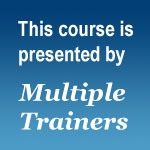

Search Results: differences
-
Explore joy through gratitude with Kathleen—stay present even amid life’s challenges.
-
Trainer Tip: Using NVC as a tool to transform our judgments can revolutionize our perceptions and relationships.
-
When asking for support from another, you are most likely to enjoy receiving that support when the person giving support is giving from the heart—from a place of joy or delight. Inviting them to say "no" is a way of encouraging an authentic response, a response you can trust more fully.
-
Learn to teach from intention, rooted in NVC principles and your audience’s real-world needs.
-
Trainer Tip: Find your deepest need. Then notice when you do things, or have done things, that keep you from meeting your most important need. And then take conscious action that is in alignment with the need you want to meet.
-
Trainer Tip: To reduce defensiveness and hurt feelings when talking to your partner about your sexual needs that haven't been met, keep the conversation focused on your needs, not her lack of skill, and make a very specific request. From there, you can both explore any shared needs, blocks, or support needed to bring you both closer to your needs.
-
Trainer tip: Judging others can affect our ability to communicate effectively with that person, or enjoy the relationship. Translating the static judgments (enemy images) we have of others into our own and others' feelings and needs can help us move into greater understanding, healing, and relief -- which can foster compassion and connection. Read on for more.
-
Trainer tip: Whenever we judge someone else in any way, we create a barrier and distance between us and the other person. Instead, consider shifting from judging other people to awareness of how their behavior affects your feelings and needs. This can make a profound difference in your ability to live peacefully. Read on for more.
-
Trainer Tip: When looking for a solution take the time to consider and connect to other's needs rather than just focusing on getting what you want. Such a basic shift in consciousness can make a profound difference in your relationships, both personal and professional. Notice how you feel afterward.
-
Bring your teaching of NVC to a new level in these intensive course recordings that focus on shifting the intention of your teaching from how to why while embodying the principles and practice of NVC every step of the way - from planning to delivery.
-
Trainer Tip: Next time you prepare for a challenging conversation, solidly connect with your own feelings and needs before entering into meeting. Then attend the meeting open to creating results that work for everyone. This is likely to give increase chances that the conversation will come to a mutually satisfying conclusion.
-
Read this short Japanese parable that symbolically illustrates the outcomes of having a competitive mindset – in contrast to an interdependent, collaborative one where everyone wins. It’s a story that encapsulates part of the spirit of NVC.
-
Learn simple steps to transform conflict and mobilize peace at home, work and in the wider world.
-
The energy of the most private events of our lives (such as sex) can ripple out and affect everything we do, like the ripples of a rock thrown in a pond. Instead of segregating -or sometimes denying- parts of ourselves, we can bring our blind spots and our shadows in self and relationships into the light. Having growth in a private life can transfer onto other areas of life.
-
So many of us have a habitual response of trying to eliminate uncertainty and the arrival of what we don't want. Alternatively, we can embrace the irreducible uncertainty of life. This shift from resistance and helplessness to mourning allows acceptance of outcomes, reduction of stress, and opens the door to noticing and appreciating what's present and available amidst challenges.
-
- Discover what is yours to do in response to our growing global crises
- Weave nonviolence more deeply into how you live and lead
- Receive ongoing support within and beyond the course in how to be effective and alive while doing what’s yours to do
- Increase your capacity to face and mourn current reality as a source of greater choice and energy
- Be a part of transforming the legacy of scarcity, separation, and powerlessness into a livable future
-
How can Nonviolent Communication (NVC) create more constructive conversations in the workplace? This video explores the key difference between calling someone in and calling them out, emphasizing the power of care over annoyance.
-
- Do you know what is yours to do in response to our growing global crises?
- Is nonviolence woven as deeply as you want it into how you live and lead?
- Have you ever experienced what it’s like to participate in an interdependent web of mutual support to fully embody our commitments?
- Are you familiar with how to bring yourself back again and again to aligning with purpose in every moment?
- Do you see yourself as part of transforming the legacy of scarcity, separation, and powerlessness into a livable future?
-
-
Quick Links

Stay in Touch!
We value your privacy, won't share your email address and you can easily unsubscribe any time.


















